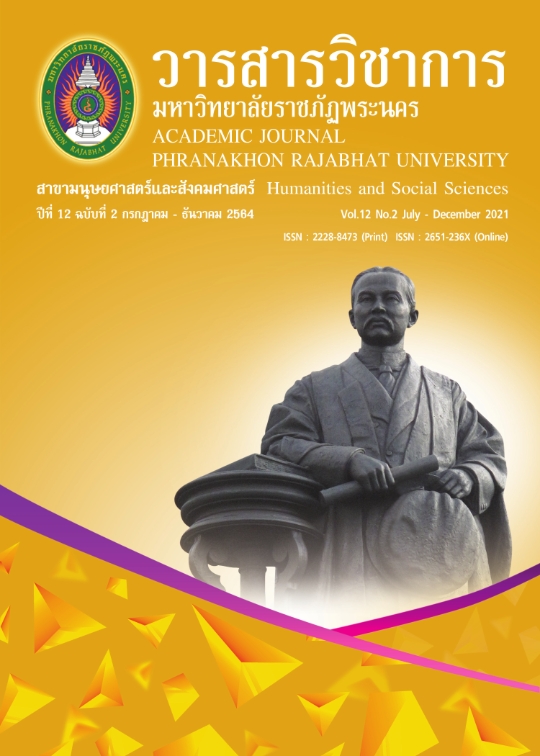EFFECTIVENESS OF SOLID WASTE COLLECTION SERVICES FOR CITIZENSHIP
Keywords:
Effectiveness of solid waste management, solid waste collection service, New public service (NPS), New service development (NSD)Abstract
The solid waste collection problem resulting from the ineffective management directly affected the community. Therefore, the mixed research’s objectives of “the effectiveness of municipal solid waste collection services for citizenship” are: 1) to analyze the factors affecting the effectiveness of solid waste collection service in Pak Kret Municipality, and 2) to propose the effectiveness of the service model for citizenship. Methodologically, the study approaches were triangulation. The quantitative technique was applied into the distribution of 400 sets of questionnaires. Additionally, the qualitative techniques was in-depth interviews with 17 participants. The findings are as follows: First, the relevant factors affecting the effectiveness of the municipal solid waste collection service in Pak Kret Municipality, ranked from the highest to the lowest are: 1) formal procedures or regulations 2) stakeholders’ participation enhancement and, 3) the solid waste collection service which is also able to interpret the change in solid waste collection effectiveness by 44.5% at p<0.05. Second, these above-mentioned factors were integrated to propose the wide range of the solid waste collection service measures. They are presented as follows.
1. The adjustment of municipal law.
2. The effective people engagement.
3. The efficiency improvement in the solid waste collection service.
4. The database system development of the household solid waste collection.
5. The development of the incentive system.
References
Ashok V. Shekdar., (2009). Sustainable solid waste management: An integrated approach for Asian countries, Waste Management. 29, 1438–1448.
Benjamin Bolaane and Emmanuel Isaac., 2015. Privatization of solid waste collection services: Lessons from Gaborone. Waste Management Vol. 40, 14–21.
Creswell, J.W., and Clark, V.L. (2007). Designing and conducting mixed methods research. Thousand Oaks. CA: Sage Publications.
David C Wilson, Ljiljana Rodic, Anne Scheinberg, Costas A Velis & Graham Alabaster. (2012). Comparative analysis of solid waste management in 20 cities, Waste Management & Research. 30(3), 237–254.
Hossain, M. S., Santhanam, A., Nnorulaini, N.N., & Omar, A.M. (2011). Clinical solid waste management practices and its impact on human health and environment–A review. Waste management. 31(4), 754-766.
Lundkvist, A., and Yakhlef, A. (2004). Customer involvement in new service development: A conversational approach. Managing Service Quality. 14(2/3), 249-259.
Mintz KK, Henn L, Park J, & Kurman J. (2019). What predicts household waste management behaviors? Culture and type of behavior as moderators. Resource Conserve Recycle. 145, 11–18.
Pitchayanin Sukholthaman and Kunio Shirahada., (2015). Technological challenges for effective development towards sustainable waste management in developing countries: Case study of Bangkok, Thailand, Technology in Society 43, 231-239.
Ramachandra, T.V. (2006). Management of Municipal Solid Waste. Teri Press, New Delhi.
Sanaz Esmaeilizadeh, · Abdolreza Shaghaghi ·& Hassan Taghipour. (2020). Key informants’ perspectives on the challenges of municipal solid waste management in Iran: a mixed method study, Journal of Material Cycles and Waste Management. 22(12), 84–1298.
Shafiul Azam Ahmed, and Mansoor Ali. (2004). Partnerships for solid waste management in developing countries: linking theories to realities, Habitat International. 28, 467–479
Sharholy, M., Ahmad, K., Mahmood, G., & Trivedi, R.C. (2008). Municipal solid waste management in Indian cities.A review. Journal ofWasteManagement. 28, 459–467.
Zhu Minghua, Fan Xiumin, Alberto Rovetta, He Qichang, Federico Vicentini, Liu Bingkai, Alessandro Giusti, & Liu Yi. (2009). Municipal solid waste management in Pudong New Area, China. Waste Management. 29, 1227–1233.
Downloads
Published
How to Cite
Issue
Section
License
"บทความวิชาการในวารสารฉบับนี้ ถือเป็นความรับผิดชอบของผู้เขียนเท่านั้น"
สงวนลิขสิทธิ์ตามพระราชบัญญัติลิขสิทธิ์




